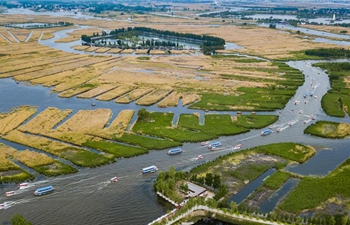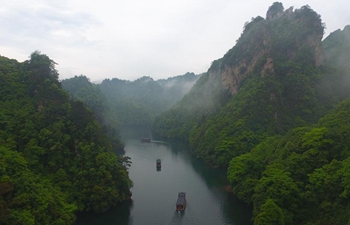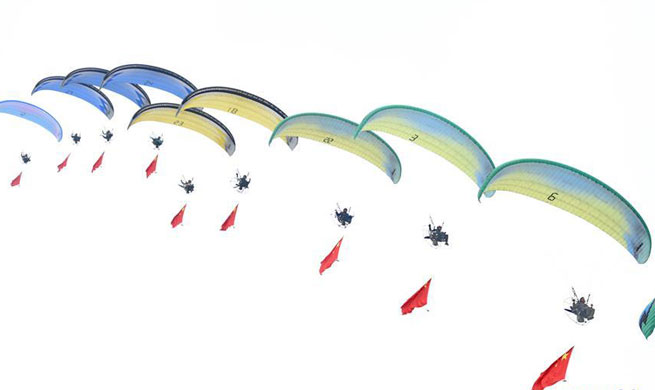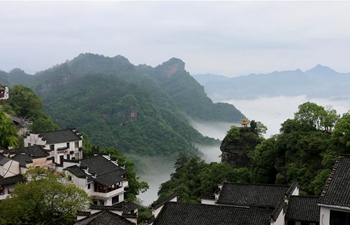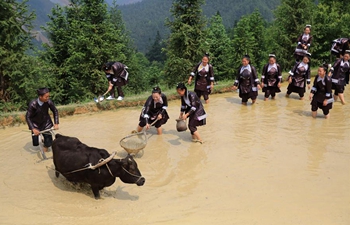SYDNEY, May 2 (Xinhua) -- Some coral species are able to regulate calcium buildup in their skeletons to better survive acidic oceans caused by rising CO2 levels, according to a latest Australian research.
The findings improved understanding of how the crucial marine organisms cope with environmental challenges.
"Ocean acidification is a decrease of seawater pH caused by human CO2 emissions entering the waters. As the pH level declines, the changes in ocean chemistry make it more difficult for corals to build their skeletons (which consists of calcium carbonate)," the University of Western Australia's Dr. Thomas DeCarlo, who led the coral study published in the Proceedings of the Royal Society B scientific journal, told Xinhua on Wednesday.
"This means that they will either build smaller skeletons or they will need to invest more energy into building their skeletons," said DeCarlo.
While many laboratory experiments have found different coral species displaying different sensitivities to ocean acidification over the past decade, "it has not been possible to measure calcium of the 'calcifying fluid' because that is so small and isolated underneath the living coral," said DeCarlo.
"We tested how corals control the levels of calcium in the micro-scale fluid where they build their skeletons under different seawater pH treatments," he said.
In the study, DeCarlo placed two coral species in waters with three different pH levels and used a novel technique involving lasers to help understand the chemical composition of their skeletons and the process of formation.
"We found that one coral species (Pocillopora damicornis) was able to increase calcium content to counter the negative effects of reduced pH, and it built its skeleton at normal rates. Conversely, a second species (Acropora youngeii) did not increase its calcium, and it built its skeleton at slower than normal rates under reduced pH."
"Our results suggest that some coral species have the ability to resist the effects of ocean acidification by modulating their internal calcium levels," DeCarlo said.
The findings suggested that the community composition of future coral reefs could change irrevocably due to ocean acidification, at the same time offering the hope that some corals are able to survive in acidified seawater, he said.
But it was still difficult to estimate the cost of such change, "in particular whether resisting acidification makes these corals more vulnerable to other stressors such as rising temperatures."







